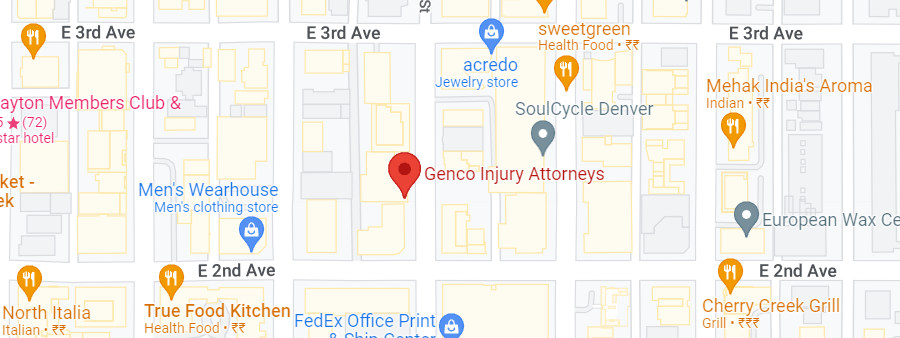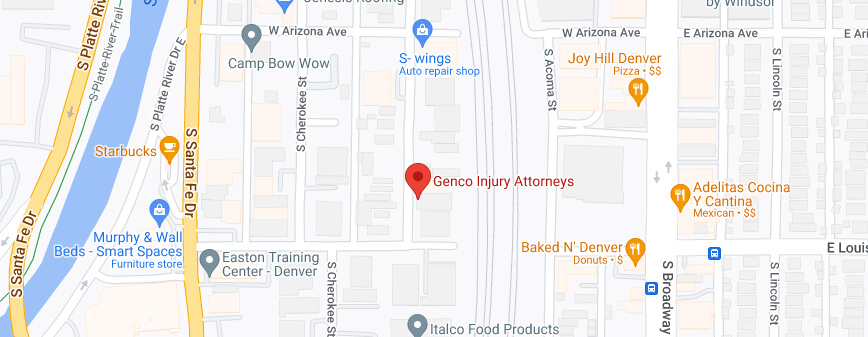What Is a No-Fault State, and Is Colorado a Fault or No-Fault State?
In a no-fault state, someone injured in an accident that was the fault of someone else still files claims with their own insurance policy first. Until the early 2000s, Colorado was a no-fault state. That meant that unless the injuries were severe, the injured party filed for claims from their insurer even if they weren’t at fault.
That’s changed, and Colorado is now a fault state. The injured party can file claims against the party at fault, so that person’s insurance should pay for the costs related to the injury. That can be a complex situation because of Colorado’s comparative negligence laws, discussed below.
How Does Colorado’s Comparative Negligence Law Affect Trucking Accidents?
Colorado’s comparative negligence laws can have a significant impact on pursuing claims or lawsuits after an accident. That’s because in many vehicular accidents, more than one driver has some fault. For example, a truck may have been speeding and hit a car that ran a red light. The car’s driver was injured, but they had some fault in the accident that caused the injury.
Different states handle comparative negligence in cases like this in various ways. Colorado uses modified comparative negligence with a threshold of 50% fault. That means that if the injured party is found to be 50% or greater at fault, they’re not eligible to file for damages. If they’re found less than 50% at fault, any damages awarded will be reduced by the percentage of fault. Using the example above, if the driver that ran the red light was found 30% liable for the accident and is awarded $10,000 in damages, they’d only receive $7,000.
This means that the trucking companies and their insurance representatives or attorneys will look hard for reasons to assign as much blame to the victim as possible in order to pay as little–or nothing–in damages. This is why working with an experienced personal injury attorney who understands truck accidents and the comparative negligence law is crucial.
What Does it Take to Prove the Truck Was at Fault for the Accident That Caused Injuries?
Colorado law requires four points of negligence to be proven for a personal injury lawsuit to be successful.
- Duty of care. The person charged with being at fault for the accident (the defendant) owed the victim a reasonable amount of care.
- Breach of the duty of care. The person with the duty of care didn’t honor it. In the example above, the truck driver should not have been speeding.
- Causation. This can be the most difficult to prove. There must be evidence that the breach of duty of care directly lead to the accident that caused the injury, and without the breach, the accident likely wouldn’t have happened.
- Damages. The victim was harmed by the accident and faced both physical and financial damages, such as out-of-pocket medical expenses and lost wages.
What Else Affects Pursuing Claims After an Accident with a Truck?
Another factor that can be critical when pursuing claims after injuries from a truck accident is the possibility of a third party’s involvement. Trucking companies often use third parties for various aspects of their operation. Even the state government may be involved. Some common parties beyond the trucking company that may be at fault include:
- Cargo loading companies. Some trucking companies subcontract to other companies to load cargo. Improperly loaded cargo can shift in the truck, causing the truck to swerve or jackknife. That’s not necessarily the driver’s fault.
- Truck manufacturer. There may be a defect in the truck that was caused during the manufacturing process, and neither the trucking company nor the driver was aware of it.
- Truck maintenance. This may be outsourced by the trucking company, and the maintenance company may not have done their jobs properly.
- Road conditions. If the roads aren’t properly maintained, truck drivers may have difficulty.
What Should I Do if I Was Injured in an Accident with a Truck?
Stay at the scene and call law enforcement to file an accident report, which is required by Colorado law. There are a few exceptions to this: You can leave the scene if the other car is empty, if someone needs immediate medical attention, or if you’re in an area with no cell service or otherwise have to go somewhere else to contact law enforcement.
Then it’s crucial to see a doctor immediately, even if you feel fine. Some injuries, including severe ones, don’t present symptoms right away. Left untreated, they can become worse and even dangerous.
Then call Genco Injury Attorneys at 303-500-1376 for a free case evaluation. Truck driving accident cases are complicated to pursue because there are so many potential avenues of fault. Our team of knowledgeable, experienced truck accident attorneys understand the complexities and can help guide you through the specifics of your case and the possible outcomes.
Something you should avoid doing: Communicating with anyone involved with the trucking side, whether it’s the driver, the trucking company, their insurance representative, or their lawyer.
Because of Colorado’s comparative negligence laws, their goal is to have as much fault assessed to you as possible. Another tactic is to try to convince you to accept a much lower settlement than you might receive through further negotiation or legal action. Don’t respond to communications, but forward them to your attorney.









